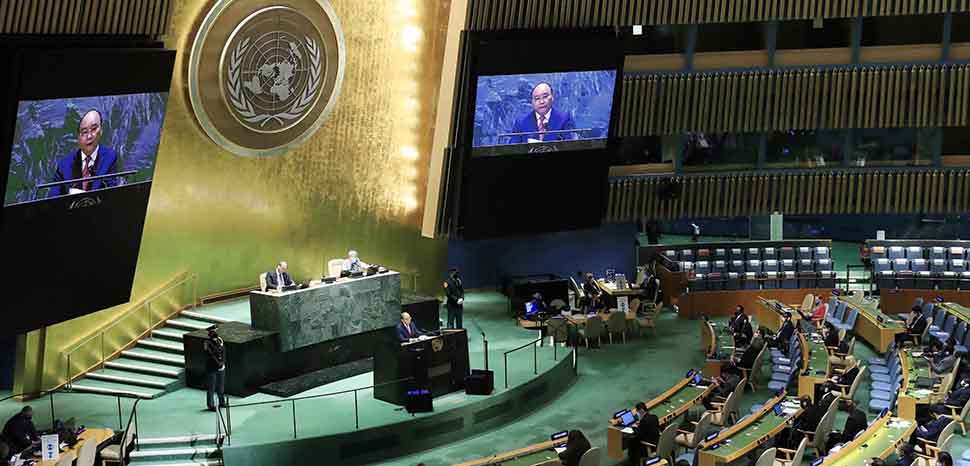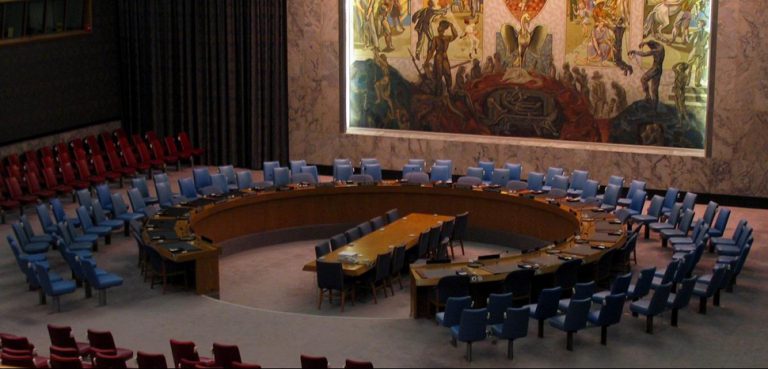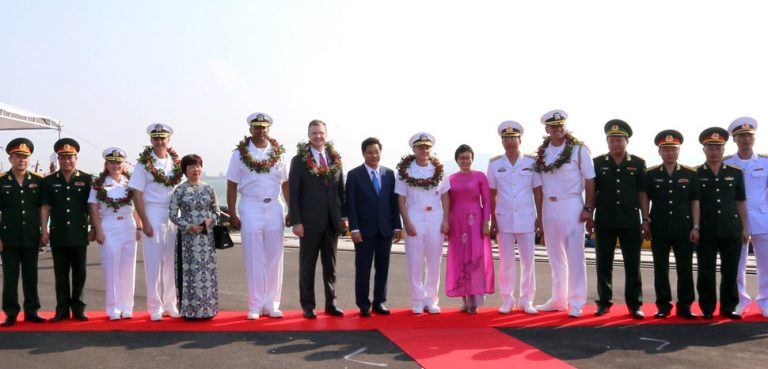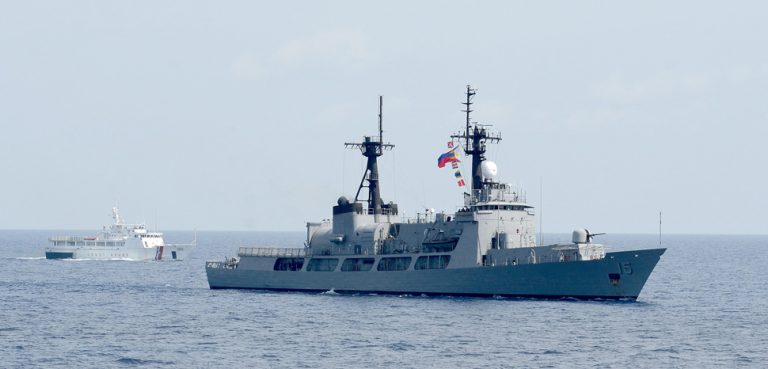The global offensive against COVID-19 took center stage at the recent 76th Session of the United Nations General Assembly (UNGA). The UN’s urgent pandemic messaging was underscored by all nations, especially by Vietnam’s President Nguyen Xuan Phuc, who recognizes that this global health storm, inextricably linked with the deadly coronavirus, has created obstacles for development, affecting the economic, political, and social life of the world, especially in small and developing countries.
“The pandemic sounds a warning bell of the shocking destruction that may be caused by non-traditional security challenges such as diseases or climate change, if they are not addressed”, declared Mr. Phuc. At the UN podium, his voice was unwavering about the global perils associated with a failure to contain the virus and for the promotion of fair and equitable access to vaccines and medications.
While this is an international issue and not just for a single country, Vietnam, once a recognized leader in the early curbing of the transmission of the COVID-19, has been forced to adopt draconian lockdown measures in response to the widening virus spread, especially in Ho Chi Minh City with rising deaths among the more than 9 million residents. The latest cumulative death statistics in the city has risen to over 13,000, accounting for 77% of Vietnam’s total.
While developed countries are taking measures to control the coronavirus, the urgent task of the world is to prevent this health crisis from ravaging developing countries because, as the United Nations High Commissioner for Refugees has made clear: “No one is safe until everyone is safe.” Vietnam continues to be in short supply of available vaccines and has one of the lowest COVID-19 vaccination rates in Asia, with just under 2% of its 98 million people fully vaccinated.
It’s no wonder that Mr. Phuc’s speech reinforced the need for the expansion of vaccination coverage, the network and supply of vaccines administered to small countries, developing countries, and support for countries to aid in their recovery post pandemic.
At a virtual COVID summit, held during the UN session, President Joe Biden committed the United States to sending an additional 500 million COVID-19 vaccines around the world, increasing the total doses to more than 1.1 billion. Global leaders know that to beat back this pandemic, all nations, rich and poor must be engaged.
This pledge has arrived at a critical moment since Hanoi is struggling to rein in a surge of new cases attributed to the Delta variant. “ For the pandemic to be repelled, it is essential that we stand in solidarity, uphold a high sense of responsibility, and step up cooperation,” claims Mr. Phuc.
Despite a resurgence of COVID-19, Vietnam’s self-image was boosted in its rotating role as a member of the UN Security Council and presidency in April 2021, and ability to steer signature events and peace-building efforts. This marks the second time that the emerging nation has served as president as a non-permanent UNSC member.
The Security Council is the most powerful UN body, composed of fifteen members, five who are permanent; namely, China, France, Russia, the UK, and the United States, along with ten non-permanent members elected every two years.
“COVID-19 is not the sole challenge that we are facing today. Increasing tensions among major powers has led to a divisive and unstable international system,” says Mr. Phuc.
He also alluded to China, like President Joseph Biden, without naming China as contributing to “disputes over territories and resources in many areas and in a disregard for international law.” This veiled irresolute reference plainly ignored China’s assaults on the United Nations mission.
Vietnam was first elected as a non-permanent member for the 2008-2009 term, and acted as the council’s president in July 2008 and October 2009. In 2020, Vietnam for the second time in history became a non-permanent member after securing 192 out of 193 votes.
Vietnam’s ascendancy in international security has been broadly witnessed in its role in hosting the 2017 Asia Pacific Economic Cooperation (APEC) summit, the 2019 Hanoi Summit, in a meeting bringing together North Korean leader Kim Jong-un and US President Donald Trump. Although the summit failed to bridge any resolution on the disarmament of a global nuclear threat, Hanoi emerged as a recognized peace-builder in what is generally regarded as a niche position in reconciliation or mediation diplomacy.
Vietnam’s repositioning as a middle power and evolving role as a peace builder demonstrates the nation’s growing confidence to play a key mediation role in the Association of Southeast Asian Nations (ASEAN) on regional security issues.
Over the past three decades, Hanoi has garnered recognition as a responsible member of the international community. The nation has successfully adopted the correct market institutions that have led to more than two decades of impressive economic performance. UN member nations have applauded Vietnam’s vaulted role in the promotion of the struggles for national independence, sovereignty, and self-determination. Vietnam’s remarkable journey from low to middle-income status lifted over 40 million people out of poverty between 1993-2014.
The nation’s successful march to the UN was accelerated by the remarkable steps taken from 1995 to 1999, including the normalizing of diplomatic and trade relations with the United States, and cooperation with multilateral donors like the World Bank and the Asian Development Bank. Notably, Vietnam has leveraged greater integration with the international economic system, including through ascension to the World Trade Organization (WTO).
Despite spending a half-century at war, Hanoi has lost no time in supporting UN initiatives that highlight the fundamental principles of international laws and the Charter in addressing international conflicts through peaceful means.
A central part of its openness and engagement with the world has been the country’s willingness to acquire a more prominent voice and position in the United Nations. This has been most evident in its successful efforts to join UN Peacekeeping Operations in early 2014, and Vietnam has its national flag proudly displayed at UN Peacekeeping Missions in South Sudan and the Central African Republic.
Vietnam recognizes the urgency in supporting the 2030 Agenda for Sustainable Development, the UN Framework Convention on Climate Change (UNFCCC), and the Paris Agreement (COP21). The country’s leadership faces the present dangers of climate change seen in their 1800-mile long coastline along the East Sea, to landslides in the northern mountains, to rising sea levels in the Mekong Delta, the rice bowl for its citizens and home to more than 20 million Vietnamese.
Vietnam is in complete accord with the UN in recognizing that poverty and environmental issues are interconnected. Human impact on the ocean and on coastal communities has been profound, ranging from the destruction of marine ecosystems and loss biodiversity.
“Cooperation in mitigating and preventing the dire impacts of climate change has become more crucial than ever before,” added Mr. Phuc in his speech.
Vietnam faces some of the greatest and most urgent threats of biodiversity degradation, extreme weather, and sea level rise from climate change of any country in the world. However, a number of new initiatives are starting to address these challenges, ranging from a national transition to green energy to a UN-backed push for sustainable development. Hanoi’s political leaders have pledged to restructure Vietnam’s economy to reduce its greenhouse gas emissions.
Mr. Phuc also referenced the lead up to toward the Conference of the Parties, (COP-26) a global UN summit on climate change scheduled in Glasgow in November. “We need to make every effort to cut greenhouse gas emissions, in which developed countries should take the lead,” claims the Vietnamese president.
Next to COVID-19, climate change ranks among the highest concerns among all Southeast Asians. Particularly the Philippines and Vietnam – two of the worst-hit countries by extreme weather events in 2020, including super typhoons Goni (Rolly) and Vamco.
With the dual challenges of COVID-19 and climate change, the transition to a new normalcy will require the cooperation of the wealthy nations helping poor and developing countries.
Vietnam is pledging to stake its own future to making proactive and responsible contributions to meet the United Nations peacekeeping charter, to uphold international law, and to achieve sustainable development goals. According to Mr. Phuc, “the pre-requisite to fostering recovery and growth in the post- pandemic era is to sustain peace, security, and stability in each country, each region, and the world at large.”
The views expressed in this article are those of the authors alone and do not necessarily reflect those of Geopoliticalmonitor.com




